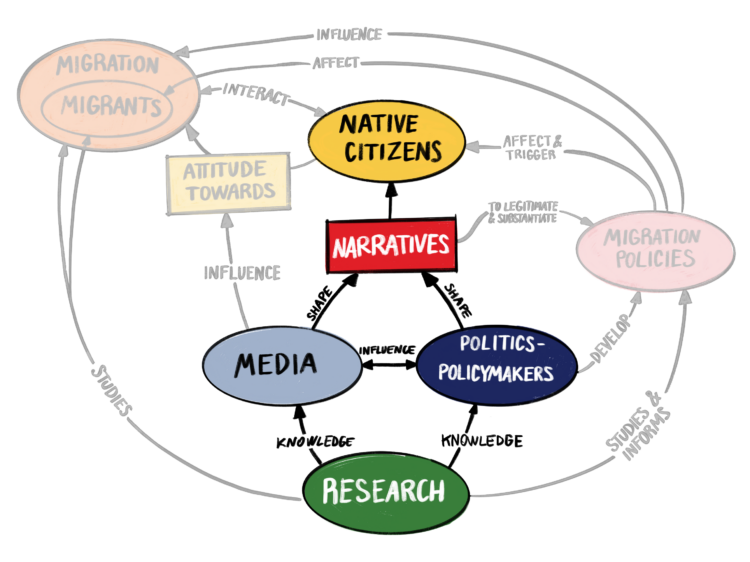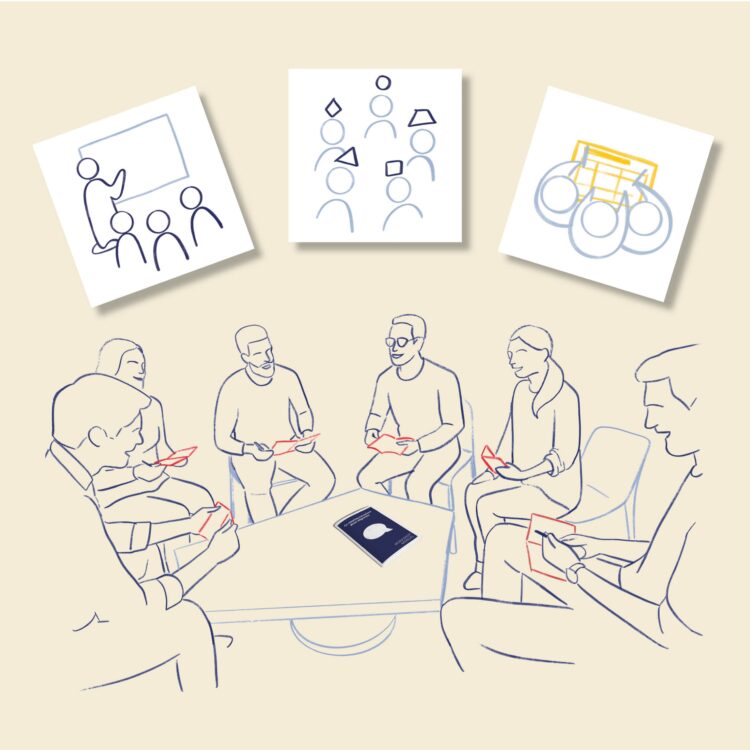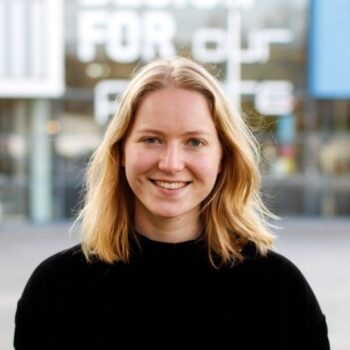Co-creating narratives about migration
Migration is becoming a growing challenge for the EU and its member states. Ariele, a recent PCM Lab graduate, took on the challenge of bridging the gap between social science research on migration patterns and its translation into effective policy. The designed workshop provides a groundwork for initiating dialogues on alternative migration policies with policymakers, representing citizens' perspectives on migration issues based on scientific knowledge.
Research shows that policymakers adopt prediction and control strategies that fail to consider the nature of migratory patterns. A lack of citizen involvement is a factor contributing to the inefficiency of migration policy. PACES is a research project aiming to bridge the gap between social science research on migration patterns and policy development in the migration sector. Ariele’s goal was to help PACES empower citizens and promote dialogues to create more informed opinions.
The project aims to facilitate a two-way information exchange between PACES and native citizens. PACES provides scientific knowledge on migration and policies, while citizens contribute their perspectives. By fostering evidence-based opinions among citizens, a greater engagement and participation in the public debate can be achieved.
Ariele initiated the project with a contextual analysis of the public debate on migration, utilizing system mapping to define stakeholders and their dynamics. This revealed a lack of direct connection between research and citizens, who often shape their opinions by political and media narratives. A smaller group, Italian emerging adults, was selected for a more in-depth exploration of their perception of the public debate and experiences in staying informed. Subsequently, a group of experts in the field of migration was consulted to understand their perception of the role of research and expert knowledge in the debate.

To bridge the gap between research and citizens, Ariele developed a workshop for PACES to “co-create narratives about migration” with Italian emerging adults. This workshop aims to share knowledge by focusing on different perspectives, assisting participants to develop their own viewpoints and transform them into narratives for wider sharing.

The “Co-creating new narrative workshop”: a set of three activities to allow the exchange of knowledge from research to citizens and the elaboration of new narratives on the topic.
The workshop led to an increased awareness among participants about migration patterns. The information could help PACES in further research development, incorporating the native citizens’ point of view. These results become the basis for initiating dialogues about alternative migration policies with policymakers, representing the perspectives of citizens on migration matters developed from scientific knowledge.

The narrative canvas: a tool to help Italian emerging adults to re-elaborate the knowledge they acquired into new narratives.
As Ariele reflects on her graduation experience, she explains that:
Exploring this context as a designer has been an intense and enriching experience, motivated by the strong drive generated in me by the mission of the PACES project. Its ambitious goals guided my project, but at the same time I realised how complex such a context can be. It confirmed to me once again how important it is to see change as a series of small actions rather than a sudden upheaval.
Realising, or rather confirming, this vision of change helped me to focus on how I could use my contribution and skills to design a circumscribed intervention that would have the greatest possible impact.
I hope that the workshop I designed will be developed further within the PACES project and possibly scaled up in its scope and participatory nature. I would address the issue by going deeper and including migrants and their demands in the dialogue. In order to have a real impact, an action must try to involve as many actors as possible.
Finally, a critical aspect I want to highlight in this project, which I believe is as relevant today as it ever was, is the importance of narratives in shaping our reality, especially in public debate on any issue. Today, more than ever, it is important for me to emphasise that the framing of certain sensitive realities as right or wrong can determine public perceptions and political strategies.
Ariele’s project is a valuable contribution to the public debate on migration policy. While placing citizens at the center, she not only provides a nuanced representation of the debate but also proposes a scalable strategy for PACES to foster open discussions on migration policy based on expert knowledge and resilience to social change.
Read the full report here.
More information on the PACES project can be found here.
